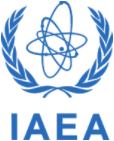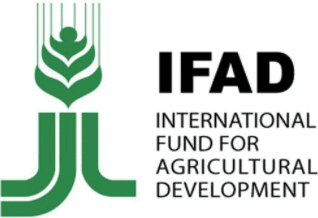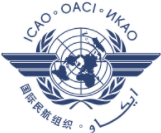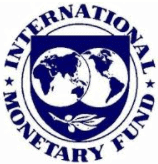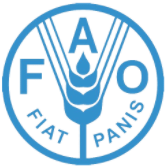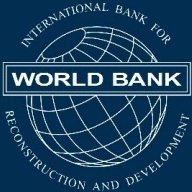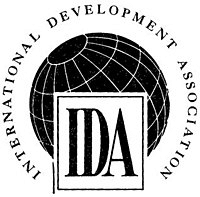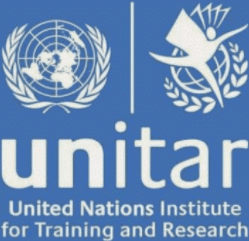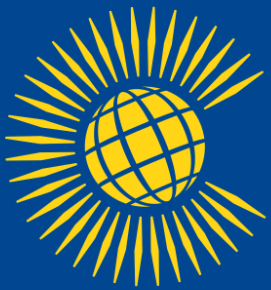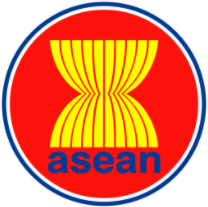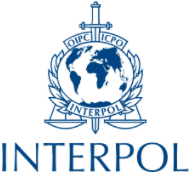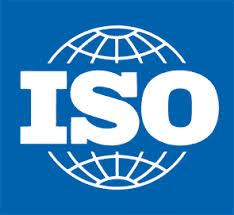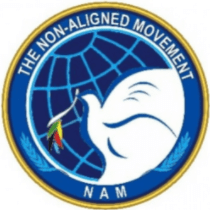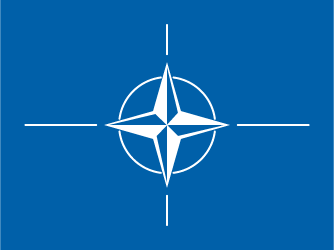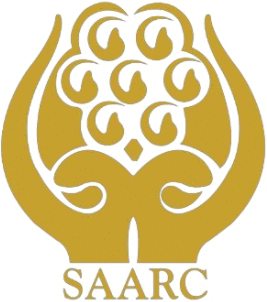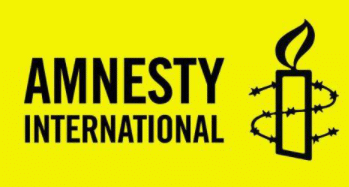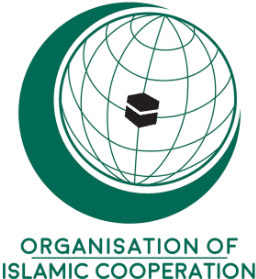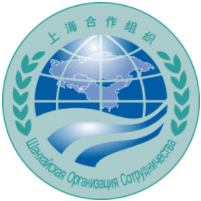United Nations & Other World Organisations | Famous Books for UPSC Exam (Summary & Tests) PDF Download
United Nations Organisation (UNO)
- World’s largest international organisation and a successor of League of Nations (League of Nations was formed after the Ist World War, but it failed).
- The Charter of the UN was signed at San Francisco on June 26, 1945, at a meeting of the representatives of 50 states, representing 2/3rd of the world population.
- The name United Nations was given at the instance of US President Roosevelt.

- The Charter or Constitution was formed at Dumbarton Oaks (Washington DC) Conference by USSR, UK, US and China.
- Formally came into existence on Oct 24, 1945.
- The first regular session was held in London in Jan 1946 and Trygve Lie (Norway) was elected as the first Secretary-General.
- Headquarters located at First Avenue, UN Plaza, New York City, New York, US. It is a 17-acre tract of land donated by John D. Rockefeller. The building is 39 storeys.
- The present membership of UN is 193. Switzerland was the 190th (in2002), East Timor was the 191st (in 2002), Montenegro became the 192nd member in 2006 & South Sudan became the 193rd in 2011.
Note
- US, UK, China, France and Russia are the permanent members of the Security Council.
Some Important U.N. Agencies
International Labour Organisation (ILO)
- Established: 1919
- Headquarters: Geneva
- Purpose: To improve conditions and living standard of workers.

World Health Organisation (WHO)
- Established: 1948
- Headquarters: Geneva
- Purpose: Attainment of the highest possible level of health by all people.

United Nations Educational, Scientific and Cultural Organisation (UNESCO)
- Established: 1946
- Headquarters: Paris
- Purpose: To promote collaboration among nations through education, science and culture.

International Atomic Energy Agency (IAEA)
- Established: 1957
- Headquarters: Vienna
- Purpose: To promote peaceful uses of atomic energy.

United Nations International Children’s Emergency Fund (UNICEF)
- Established: 1946
- Headquarters: New York
- Purpose: To promote children’s welfare all over the world.

United Nations High Commissioner for Refugees (UNHCR)
- Established: 1950
- Headquarters: Geneva
- Purpose: To provide protection to refugees.

United Nations Fund for Population Activities (UNFPA)
- Established: 1967
- Headquarters: New York
- Purpose: Studying population dynamics, collecting population data, formulating and evolving population policies, family planning and related programmes.

International Fund for Agricultural Development
- Established: 1977
- Headquarters: Rome
- Purpose: For financing agricultural projects in the world to raise economic growth.

United Nations Conference on Trade and Development (UNCTAD)
- Established: 1964
- Headquarters: Geneva
- Purpose: Promotes international trade to accelerate the economic growth of developing countries.

International Civil Aviation Organisation (ICAO)
- Established: 1947
- Headquarters: Montreal
- Purpose: Promotes safety of international aviation.

International Monetary Fund (IMF)
- Established: 1945
- Headquarters: Washington D.C.
- Purpose: Promotes international monetary cooperation.

International Finance Corporation (IFC)
- Established: 1956
- Headquarters: Washington D.C.
- Purpose: Promotes economic development by encouraging private enterprise in its member countries.

Universal Postal Union (UPU)
- Established: 1947
- Headquarters: Berne
- Purpose: Improve various postal services in the world.

United Nations Environmental Programme (UNEP)
- Established: 1972
- Headquarters: Nairobi
- Purpose: Promotes international co-operation in the human environment.

United Nations Industrial Development Organisation (UNIDO)
- Established: 1967
- Headquarters: Geneva
- Purpose: Sets international regulations for radio, telegraph, and telephone and space radio communication.

Food and Agricultural Organisation (FAO)
- Established: 1945
- Headquarters: Rome
- Purpose: To improve the living condition of the total population.

International Bank for Reconstruction and Development (IBRD)
- Established: 1945
- Headquarters: Washington D.C.
- Purpose: Development of Economies of members by facilitating investment of capitals by providing loans.

World Meteorological Organisation (WMO)
- Established: 1950
- Headquarters: Geneva
- Purpose: Promote the international exchange of weather reports.

World Trade Organisation (WTO)
- Established: 1995
- Headquarters: Geneva
- Purpose: Setting rules for world trade to reduce tariffs.

United Nations Development Programme (UNDP)
- Established: 1965
- Headquarters: New York
- Purpose: Help developing countries increase the wealth-producing capabilities of their natural and human resources.

Inter-Government Maritime Consultative Organisation (IMCO)
- Established: 1958
- Headquarters: London
- Purpose: Promotes co-operation on technical matters of maritime safety, navigation and encourages anti-pollution measures.

International Development Association (IDA)
- Established: 1960
- Headquarters: Washington D.C.
- Purpose: An affiliate of the World Bank. Aims to help under-developed countries raise living standards.

International Tele-communication Union (ITU)
- Established: 1947
- Headquarters: Geneva
- Purpose: Sets international regulations for radiotelegraph, telephone and space radio communications.

United Nations Institute for Training and Research (UNITAR)
- Established: 1965
- Headquarters: New York
- Purpose: Provides training and research to help facilitate UN objectives of world peace and security and of economic and social progress.

United Nations Relief and Work for Palestine Refugees (UNRWA)
- Established: 1949
- Headquarters: New York
- Purpose: Provides basic amenities and education for the victims of the Arab-Israel War.

Other International Organisations and Groups
The Common Wealth
- It was originally known as ‘The British Commonwealth of Nations’. It is an association of sovereign and independent states which formally made up the British Empire.
- Headquarters: London.
- Members: 53
- The British Monarch (Queen Elizabeth II) is the symbolic head of the commonwealth.
- Commonwealth heads of government meet (CHOGM) is held every 2 years.

Arab League
- Established: March. 22, 1945.
- Objective: To promote economic, social, political and military cooperation.
- Members: 22
- Headquarters: Cairo

Asia Pacific Economic Cooperation (APEC)
- Established: Nov 1989
- Objective: To promote trade and investment in the Pacific basin.
- Member: 21

Asian Development Bank (ADB)
- Established: Dec. 19, 1966
- Objective: To promote regional economic cooperation
- Member: 67
- Headquarters: Manila

Association of South-East Asian Nations (ASEAN)
- Established: Aug. 8, 1967
- Objective: Regional, economic, social and cultural cooperation among the non-communist countries of South-East Asia.
- Member (10): Brunei, Indonesia, Malaysia, Philippines, Singapore, Thailand, Vietnam, Laos, Myanmar, Cambodia.
- Headquarters: Djakarta

Common Wealth of Independent States (CIS)
- Established: Dec. 8, 1991
- Objective: To coordinate inter-common wealth relations and to provide a mechanism for the orderly dissolution of the USSR.
- Members: 11
- Headquarters: Kerava (Belarus)

Group of 8 or G-8
- Established: 1989
- Objective: To promote economic cooperation among developing nations.
- Members: 17
Group of 15 (G-15)
- Established: 1989
- Objective: To promote economic cooperation among developing nations.
- Members: 17
Group of 77 (G-77)
- Established: 1989
- Objective: To promote economic cooperation among developing nations.
- Members: 17
➢ International Criminal Police Organisation (INTERPOL)
- Established: 1914
- Objective: To promote international cooperation among criminal police authorities.
- Members: 190
- Headquarters: France

International Olympic Committee (IOC)
- Established: June. 23, 1894
- Objective: To promote the Olympic ideals and administer the Olympic Games.
- Members: 105
- Headquarters: Switzerland

International Organisation for Standardisation (ISO)
- Established: Feb. 1947
- Objective: To promote the development of international standards
- Members: 163
- Headquarters: Switzerland

International Red Cross And Red Crescent Movements
- Established: 1928
- Objective: To promote worldwide humanitarian aid
- Headquarters: Geneva

Non-Aligned Movement (NAM)
- Established: Sept. 1961
- Objective: Political co-operation and separate itself from both USA and USSR (in the cold-war era)
- Members:120.
- The credit of evolving the concept goes to Pt. Jawahar Lal Nehru.
- The other contributors were Marshal Tito (President of Yugoslavia), Dr. Sukarno (President of Indonesia) and General Nasser (President of Egypt).
- Bandung conference in Indonesia became the forum for the birth of NAM.

European Union
- Established: Apr. 8, 1965. Effective on July 1, 1967.
- Objective: To create a united Europe in which member countries would have such strong economic and political bones that war would cease to be a recurring fact.
- Members: 28 (The ten new countries which joined in 2004 are Cyprus, Czech Republic, Estonia, Hungary, Latvia, Lithuania, Malta, Poland, Slovakia and Slovania). Croatia joined in 2013.
- Headquarters: Brussels (Belgium). The common European, currency, Euro, was launched on Jan. 1, 1999.

North Atlantic Treaty Organisation (NATO)
- Established: April 4, 1949
- Objective: Mutual defence and cooperation
- Members: 28
- Headquarters: Brussels

Organisation of Petroleum Exporting Countries (OPEC)
- Established: Sept, 1959
- Objective: Attempts to set world prices by controlling oil production and also pursues member interest in trade and development.
- Members: 12 (Algeria, Iran, Iraq, Kuwait, Libya, UAE, Nigeria, Qatar, Saudi Arabia, Ecuador and Venezuela)
- Headquarters: Vienna (Austria)

South Asian Association For Regional Cooperation (SAARC)
- Established: Dec. 8, 1985
- Objective: To promote economic, social and cultural cooperation
- Members (8): Bangladesh, Bhutan, India, Maldives, Nepal, Pakistan, Sri Lanka and Afghanistan.
- Headquarters: Kathmandu

Amnesty International (AI)
- Established: 1961
- Objective: To keep a watch over human rights violation worldwide. Headquarter: London
- Got Nobel Prize in 1977 for Peace

Organisation of The Islamic Conference (OIC)
- Established: 1969
- Objective: To promote Islamic solidarity among member states and to consolidate cooperation among members.
- Members: 57
- Headquarters: Saudi Arabia

Shanghai Cooperation Organisation (SCO)
- Established: June. 7, 2002.
- Objective: To develop mutual cooperation.
- Members: Russia, China, Kazakhstan, Uzbekistan, Kirghizstan and Tajikistan.

World Wildlife Fund For Nature (WWF)
- Established: Sept. 11, 1961
- Objective: To save wildlife from extinction
- Members: All the countries of the world
- Headquarters: Gland (Switzerland)

|
747 videos|1231 docs|633 tests
|
FAQs on United Nations & Other World Organisations - Famous Books for UPSC Exam (Summary & Tests)
| 1. What is the United Nations Organisation (UNO)? |  |
| 2. What are some important U.N. agencies? |  |
| 3. What are some other international organizations and groups? |  |
| 4. How does the United Nations work with other world organizations? |  |
| 5. What are some frequently asked questions about the United Nations and other world organizations? |  |





